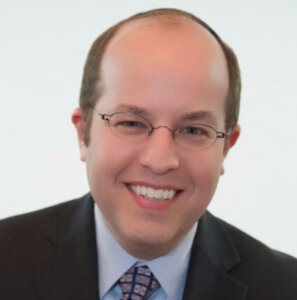

Illustration by Benyamin Cohen/Midjourney

By means of Rabbi Daniel Cohen
October 31, 2024
Years ago, when I was applying for a rabbinical position in Denver, a longtime synagogue member, who has since become a very good friend, asked me the following question:
“Rabbi, if I die, will I be reunited with my parents?” There was no doubt that it was an in-depth investigation for a first meeting, but I confidently and immediately replied: “Yes, you will be reunited with them.”
The Zohar, the foundational work of Jewish mysticism, teaches that the soul is indestructible and eternal. The body is simply a vessel.

The concept of an afterlife is easier to understand when we realize that we are not only a complex organism of body mass, but also possess a spark of the divine: our consciousness, a calling within us for meaning and purpose, a longing for love and love . to be loved, to give and seek deep joy.
In the words of Ray Charles: “What is a soul? It’s just like electricity. We don’t really know what it is, but it is a power that can light up a room.”
At the time of someone’s death, we show extra sensitivity towards the deceased. For example, we do not recite blessings in front of the person. Why? Jewish tradition teaches that the soul is always present and floats above the person. It would be considered inappropriate to recite a blessing in the presence of a soul no longer joined to a body to carry out the Jewish commandments. This is just one of many examples that confirm the living soul.
I have performed at hundreds of funerals. During the funeral I explain to the family and friends that we do not place earth on the person, but only on the body, the vessel. The soul of the person looks down upon us and receives comfort as we help the body and soul separate and be released to reunite with God. A soul is like a candle that lights many flames.
The wind is one of the most vivid manifestations of the soul. Jewish mysticism teaches that the soul is like the wind, for just as the wind is not something we can see but feel, so too is the soul. Almost every time, when we finish the funeral, the coffin is covered with earth and I and others feel the wind. This is confirmation that the soul is now free. Although we may not see the person in our lives, we will feel present in ways we never imagined.
My mother, for example, is still very much alive. She died suddenly at the age of 44, more than thirty years ago, but I still feel her presence. I didn’t know that a memory of her father, my grandfather, provided me with one of the deepest sources of comfort.
As a child growing up in Atlanta, I will never forget flying a kite with my grandfather and the joy I felt one day when the kite flew so high that I could no longer see it in the clouds. However, I knew it was there because I felt the tug.
Many years later, I learned an idea from Rabbi Joseph Soloveitchik, an influential 20th century Modern Orthodox philosopher, who explained that this phenomenon describes the status of a soul that is no longer in a body. We may not be able to physically hug our deceased loved ones, but we can feel their tug. When we speak about them, try to emulate their values in our lives, do a good deed in their memory, the tug becomes stronger and nourishes the bond between heaven and earth, the souls and the people who are still alive.
Finally, a major mission of Judaism is to uplift this world, the here and now. The existence of the soul in each of us calls us to make the most of our lives on this earth.
The Talmud teaches that before we are born, every human being, regardless of our faith, is guided by an angel to learn the secret of a meaningful life. Just before we are born, the angel taps us under the nose and we forget everything we have learned. This is the source of the notch under our nose.
In reality, the secret is not forgotten, but hidden deep within. Jewish thought teaches that when we are born, we enter the world with this divine light driven into our unconscious. Decades pass before we are called to leave our earthly existence. Just before we die, we are also greeted by an angel. Chillingly, the angel is not a stranger. We recognize the angel. It is the same angel who shared the light with us at the beginning of our lives. The angel will ask each of us two questions.
Have you revealed the light I have implanted in you? Have you shared your light with the world?
How well we answer these two questions determines whether we have lived our lives with joy, meaning, impact and inner peace.
Yes, Jews believe in life after death. It is not the purpose of our existence. We now have access to life’s deepest pleasures. It depends on how we live our lives every day.
Daniel Cohen is the senior rabbi of Congregation Agudath Sholom in Stamford, Connecticut. He speaks nationally about living a life of legacy and is the author of What will they say about you when you’re gone? Creating a life full of heritage. For more information and to contact him, visit www.rabbidanielcohen.com.

I hope you appreciated this article. Before you go, I’d like to ask you to support the Forward’s award-winning nonprofit journalism during this critical time.
At a time when other newsrooms are closing or cutting back, the Come on has removed its paywall and invested additional resources to report on the ground from Israel and the rest of the US on the impact of the war, rising anti-Semitism and polarized discourse.
Readers like you make it all possible. Support our work by Come on Become a member and connect with our journalism and your community.
– Rachel Fishman Feddersen, Publisher and CEO